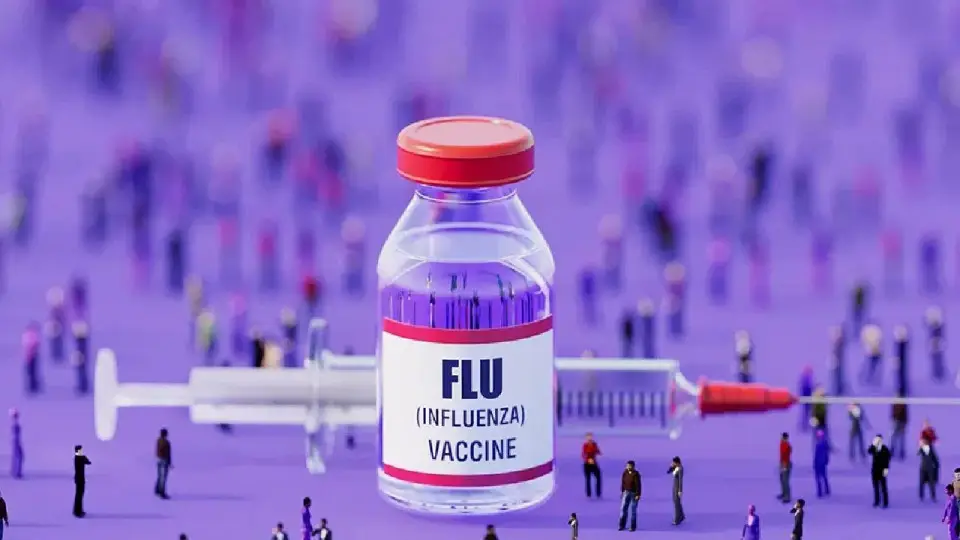
Flu vaccine
National News: Flu, also known as influenza, is a viral infection that mainly affects the nose, throat, and lungs. Its symptoms often begin like a normal cold but can worsen suddenly. Many people ignore it thinking it is common fever, but flu can sometimes lead to pneumonia and lung infections. Children, elderly people, and those with weak immunity are at the highest risk. Every year thousands of cases are reported in India, some even fatal. Doctors say flu is preventable, but timely action is the key.
The influenza virus spreads through droplets when an infected person coughs or sneezes. It can easily reach others standing nearby or even spread through surfaces touched by the infected person. In crowded cities, chances of transmission are much higher. That is why doctors stress vaccination as the best shield. Simple steps like covering your mouth while coughing and washing hands regularly can reduce risk. But experts agree that prevention is incomplete without vaccination.
The flu vaccine is an injection given once a year. It works by preparing the body’s immune system to fight the influenza virus. Since the virus keeps changing its form every year, the vaccine is updated regularly. Doctors recommend taking the new vaccine each year to stay protected. It does not fully guarantee immunity but ensures the disease remains mild. According to experts, the flu vaccine can reduce serious illness risk by 80 to 90 percent.
India records thousands of H1N1 flu cases every year. Global reports suggest 30 to 50 million people suffer from influenza worldwide annually. Still, vaccine coverage in India remains extremely low. Only 1.5 percent adults get vaccinated. Among healthcare workers, the percentage is only 8 to 34. Despite knowing about the vaccine, many ignore it, which leads to unnecessary illness. Experts warn that if more adults get vaccinated, the spread of flu can be reduced significantly.
Zydus Lifesciences has launched VaxiFlu, India’s first trivalent influenza vaccine. This vaccine covers multiple strains, including H3N2 and B Victoria, which are currently found in India. The World Health Organization has confirmed its effectiveness. India’s National Center for Disease Control has also recommended it for the 2025-26 season. Experts believe this is a big step forward in protecting people from seasonal flu. Making this vaccine available widely can improve public health outcomes.
Doctors say that the flu vaccine should be taken twice a year depending on the season. The first period is between July and September, during monsoon. The second period is between October and December, as winter begins. These are the months when flu cases rise sharply. Taking the vaccine during this window ensures the body has enough immunity. Parents are advised to vaccinate children, and elders above 60 are strongly recommended to take it. Timely vaccination is the most effective way to prevent flu.
Health experts stress that flu may look common but can turn serious quickly. Prevention is easier than cure, and vaccination is the strongest step. Along with it, following simple hygiene like using masks, avoiding crowded places during outbreaks, and eating healthy also matters. With vaccination, risk of hospitalization reduces drastically. Doctors say protecting yourself also protects your family. The flu vaccine is not just a choice; it is a responsibility to stop the spread.













Copyright © 2025 Top Indian News
